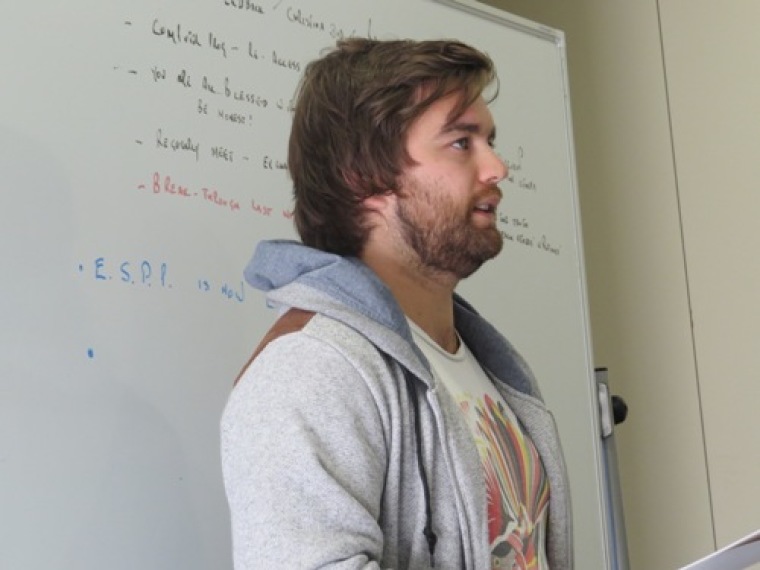
James Ihaka wrote that according to a leading academic the Asian population living in New Zealand will out number the Maori population within a decade, that is by 2024.
In census terms a decade is just around the corner and Government Statistician Liz MacPherson was reported as explaining that one in seven people in New Zealand were of Maori descent. This made Maori the second largest ethnic group in New Zealand.
By the 2020s the number of Asians in New Zealand will be larger than Maori noted Massey University pro vice-chancellor Professor Paul Spoonley but measured this by the large numbers living across the Tasman.
Moreover, there have been 1 million New Zealanders born overseas according to this New Zealand Herald newspaper article. (www.nzherald.co.nz)
Maori House
Fiji
The overarching concern of the eighties in Fiji from the Chiefs, Leading national figures and the military was the ever growing numbers of those Fijians from Indian descent.
These Fijians from Indian descent looked different, lived with customs associated with their family background, ran many of the local businesses especially in the major tourist areas and were thought to be in the process of gaining political ascendency.
The Fijian elites as described above, along with a vast majority of Fijians, watched all this develop over a number of years without some legal framework and mechanism to somehow contain this phenomena.
The concern was that the Fijian nation would soon be swamped by those who appeared different to the historic Fijian people group (indigenous Fijian) and the military stepped in.
The Fijian constitution was altered to avert any chance of anyone from any other ethnic group other than the indigenous Fijian to take political control of the Fijian nation and moreover take control of other aspects of Fijian life.
It was much more than this – immigration, political influence, religion, sport, business, culture – nothing was exempt from these new policies.
Many of these ethnic Indians had never known any other home than Fiji. They were born in Fiji. They were educated in Fiji. Many were the fourth and fifth generation Fijians. In effect they lost any semblance of Fijian identity due to the way they looked from their heritage from generations long gone.
The international political fallout was very serious with a vast number of western nations cutting diplomatic ties but none were faced with the same identity crisis as were the indigenous Fijian people groups.
New Zealand
James Ihaka in his article quoted New Zealand Labour's shadow minister of Maori affairs Shane Jones who said many Maori families were "an amalgam of ethnicities" that all migrants coming to New Zealand will realise "we have our own constitutional pedigree."
Mark with Maori Pastor Gordon
Shane Jones went on to say that if Maori were outnumbered by new migrants they could cleave more doggedly to the Treaty of Waitangi as a charter for Maori position in society.
So there you have it, whereas the Fijian indigenous population were in effect instituting their own form of Waitangi treaty in constitutional form (even it seemed after the horse had bolted), the Maori already had such a constitutional framework to secure their special identity and place in any new New Zealand that might develop.
The reality is that it is more than a constitutional issue.
It is also a religious and cultural one. Fiji is a Christian nation but it's not that easy to find an ethnic Indian Christian church in Fiji. On the other hand there are innumerable Maori Christian Churches along with a western style Christian churches throughout New Zealand have Maori worshippers and leaders. Fascinatingly many Asians migrating to New Zealand are Christians.
The Auckland taxi driver was Korean who took us to the airport and beside him was his Korean bible. That led into a bountiful conversation discovering the huge numbers of Asian Christians who have a wide connecting network. One of our New Zealand young writers comes from a Korean background and the editor of Christian Today who grew up in New Zealand was born in Taiwan of Chinese parentage.
Dr Mark Tronson is a Baptist minister (retired) who served as the Australian cricket team chaplain for 17 years (2000 ret) and established Life After Cricket in 2001. He was recognised by the Olympic Ministry Medal in 2009 presented by Carl Lewis Olympian of the Century. He mentors young writers and has written 24 books, and enjoys writing. He is married to Delma, with four adult children and grand-children.
Mark Tronson's archive of articles can be viewed at
http://www.pressserviceinternational.org/mark-tronson.html

